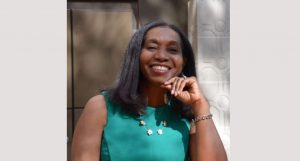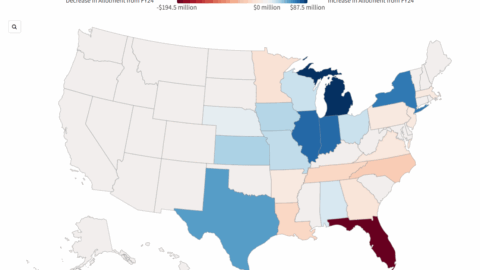
Breaking silence around Black women’s reproductive health: A conversation with Lilly Marcelin
Community activist Lilly Marcelin has dedicated her career to addressing racial and social inequities. In 2012, she founded and is now the Executive Director of the Boston-based organization, Resilient Sisterhood Project (RSP). The organization’s mission is to educate and empower women of African descent about common, but rarely discussed, diseases of the reproductive system that disproportionately affect them through workshops, trainings, empowerment circles, and community education and outreach programs. Ms. Marcelin ensures RSP’s work is done in partnership with – rather than on behalf of – Black women in order to address deeply rooted systemic racism.
I recently spoke with Lilly Marcelin to learn more about her advocacy around Black women’s reproductive health, including the importance of involving and centering Black women in this work.
This interview has been edited for clarity and brevity and approved by Lilly Marcelin.
Jennifer Ortega: How did your journey in Black women’s reproductive health work begin?
Lilly Marcelin: My journey in Black women’s reproductive health started over three decades ago when I began working with women of various ethnicities and racial backgrounds, and in particular, women of African descent, who faced gender-based violence, domestic and sexual assault, human trafficking, labor exploitation, immigration problems, and so much more. Over time in my interactions with them, I noticed a common thread – that some of the women were also dealing with many diseases of the reproductive system. That awareness piqued my curiosity and concern.
JO: What led to the creation of RSP versus addressing these issues through existing programs?
LM: Many factors led to the creation of RSP. It was becoming clear to me that these health issues might be impacting many other women in the Black community. I wondered about family members, friends, and peers – did they too struggle with these health concerns? Drawing on our rich oral and cultural tradition as Black folks, I invited close family members, friends, and colleagues to gather in circles and speak one-on-one about their experiences in dealing with diseases that included uterine fibroids, endometriosis, infertility, polycystic ovarian syndrome, breast, cervical, endometrial, ovarian cancers, and more. Indeed, the women spoke openly, and I gathered a sense of breaking a profound silence. Each story was unique, and yet, I heard some persistent, recurring themes having to do with complexities relating to these health issues.
JO: A goal of RSP is to address and dismantle the silence, secrecy, and inaction around reproductive diseases in the Black community. What are the unique advantages of addressing these issues through a community-based approach?
LM: There are many unique advantages to addressing these issues through a community-based approach – certainly too many to be named here. An important advantage for us is being able to center the concerns, voices, and lived experiences of Black women who are disproportionately affected by these health issues. Working within our communities helps us inform women to think about the social determinants of health, from food injustice to incarceration and many other injustices, that have or can make them more vulnerable to complications from the aforementioned diseases.
JO: An important aspect of RSP’s work is including a social and cultural lens in addressing reproductive diseases. What are the benefits of using this approach for connecting with your participants?
LM: A cultural lens supports our vision to rethink and reframe the dominant, negative, and limited narratives around Black women’s reproductive health. We advocate and work on challenging medical and social inequities that are harmful to Black women’s reproductive health. This advocacy platform is necessary to continue our transformative movement of empowering well-informed women to articulate their reproductive health concerns and needs to their medical providers and to influence social and public health policies.
JO: We see RSP’s commitment to engaging younger audiences. Could you explain why and how you may tweak your strategies to do that?
LM: We have always prioritized the reproductive health of young Black women. Our very first program after the launch of RSP in the summer of 2012 was a zine peer leadership project for Black teen girls. During that program they learned valuable knowledge regarding teens’ reproductive health and certain diseases of the reproductive system that affect Black women at younger ages. We also emphasize the role of environmental injustice and the intersection between exposure to toxic chemicals and women’s reproductive health.
RSP will always integrate the voices of younger audiences in its work. I think it’s critically important to teach young people to prioritize their reproductive health starting at an early age. Lastly, I also believe in the leadership of young people as they become or continue to be producers of knowledge about women’s reproductive health and reproductive rights and peer-educators for a healthier, just, and equitable society.
JO: Would you say there have been improvements in the way reproductive health diseases are discussed and addressed compared to when you began this work, either locally or nationally?
LM: Yes, I do believe there have been some improvements locally and nationally. Part of the improvement at RSP involves being relentless in reframing and rethinking the narrative around the broad spectrum of reproductive health needs of Black women.
Before I started RSP, I noticed that Black women’s health issues were not central issues to most reproductive health organizations. This was true in 2012 and, unfortunately, this is still true today. Reproductive health is often thought of or characterized in terms of maternal health and motherhood. If and when Black women’s reproductive health is discussed, it is repeatedly in the context of abortions, teen pregnancy, or sexually transmitted infections. While I understand the importance of talking about these health issues, I also recognize these conversations are largely led by people who don’t always have our reproductive well-being in mind. These hot-button issues are used to marginalize and stigmatize Black women, leading them to stay silent about the health issues that affect them, their families, and their community at large.
Lilly Marcelin is a community activist and organizer who has dedicated her lifelong journey around racial and social justice equity. Ms. Marcelin has worked on a broad range of issues from gender-based violence, human trafficking, health and socioeconomic disparities to women’s reproductive health and rights. She is the Founder and Executive Director of the Resilient Sisterhood Project (RSP) with a mission to inform and empower women and young adults of African descent about the common diseases of the reproductive system that disproportionately affect them. Ms. Marcelin strongly prefers to work in partnership with – rather than on behalf of – Black women in order to address deeply rooted systemic racism.
Ms. Marcelin holds educational degrees from:
Wellesley College—B.A. Women’s and Gender Studies with a concentration in Science, Public Health, and Global Health
Tufts University – Masters in Public Policy
Boston University School of Management – Certificate from the Institute for Nonprofit Management and Leadership (INML) program.
Learn more about the Resilient Sisterhood Project’s work by following them on Twitter, Instagram, and Facebook.
Interested in staying in the loop about more Clean Beauty Justice-related content? Sign up for our newsletter!













One Comment
Lilly Marcelin is one of the leading lights in the field of Black women’s reproductive health challenges. She has raised the level of discourse both in private and public spaces – using a cultural and social justice lens.